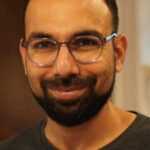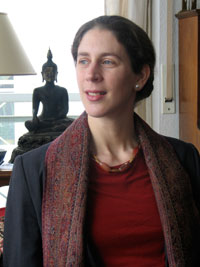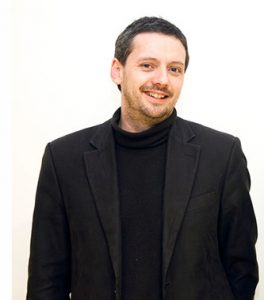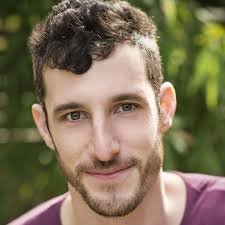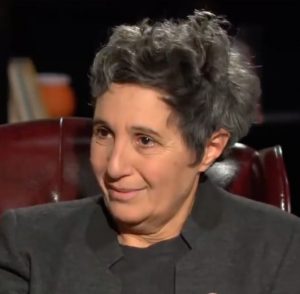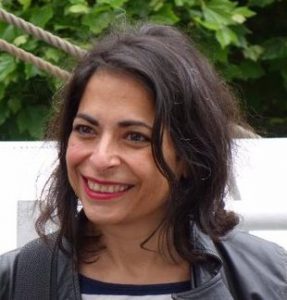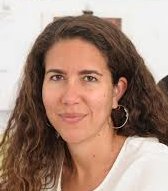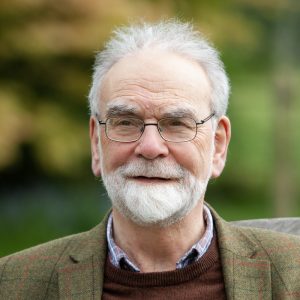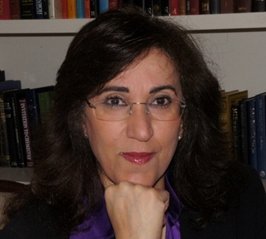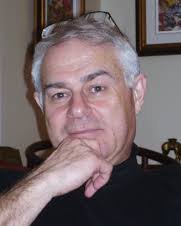Videos and Podcasts
The Centre of Islamic Studies takes video or audio recordings of some speakers and events in order to reach a wider audience. These range from research material to public talks and lectures given at the University of Cambridge.
 CIS Public Talks – Toby Matthiesen on ‘Rethinking the Global History of Sunni-Shii Relations and Confessionalisation in Islam’
CIS Public Talks – Toby Matthiesen on ‘Rethinking the Global History of Sunni-Shii Relations and Confessionalisation in Islam’
2 May 2024
Based on a synthesis of decades of scholarship in numerous languages, The Caliph and the Imam: The Making of Sunnism and Shiism, is the first truly global and longue durée history of Sunni-Shii relations. In this talk, Matthiesen will outline his motivations for writing the book as well as some of the challenges he faced in the process. He will furthermore explain how the book contributes to and departs from earlier work and how it can contribute to discussions of religion and politics more broadly, especially in the early modern and modern periods.
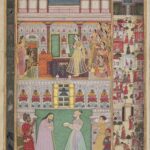 From Konkan to Coromandel – Makoto Kitada on “Translating Dakani Poetry and Nusrati’s Gulshan-i ‘Ishq’‘
From Konkan to Coromandel – Makoto Kitada on “Translating Dakani Poetry and Nusrati’s Gulshan-i ‘Ishq’‘
19 April 2024
Makoto Kitada is researching the performing arts (drama and music) of medieval South Asia based on texts in Sanskrit, Bengali, Urdu, Newar, and other languages..
Co-sponsored by Art, Resources, and Teaching Trust, Bangalore.
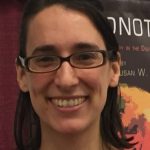 CIS Public Talks – Alice Wilson on ‘Afterlives of Revolution: Everyday Counter-histories in Southern Oman’
CIS Public Talks – Alice Wilson on ‘Afterlives of Revolution: Everyday Counter-histories in Southern Oman’
22 February 2024
The Dhufar Revolution was fought between 1965-1976 in an attempt to depose Oman’s British-backed Sultan and advance social ideals of egalitarianism and gender equality. But following counterinsurgency victory, Oman’s government expunged the revolution from sanctioned historical narratives. Alice Wilson considers the ‘social afterlives’ of revolutionary values and networks and how veteran militants have used kinship and daily socializing to reproduce networks of social egalitarianism and commemorate the revolution in unofficial ways. Recognizing that those typically depicted as coopted can still reproduce counterhegemonic values, Afterlives of Revolution illuminates a condition all too common across Southwest Asia and North Africa: the experience of defeated revolutionaries living under the authoritarian state they once contested.
If you want a copy of Dr Wilson’s book we are sharing a discount code – here for the UK & Europe and here for the US/Canada.
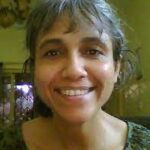 From Konkan to Coromandel – Amita Kanekar on “The Rise and Fall of the Goan Temple’‘
From Konkan to Coromandel – Amita Kanekar on “The Rise and Fall of the Goan Temple’‘
16 February 2024
The lecture will summarise my research on the Goan temple, an architectural type of immense heterogeneity which is now in a state of precipitous decline. Beginning with an introduction to the architecture, it will look at the origins of this temple type, its brief moment in the sun, and the reasons for its ongoing disappearance. Along the way, we will get an understanding of the political and social context of this temple, and how this is reflected in the architecture, especially the context of caste.
Co-sponsored by Art, Resources, and Teaching Trust, Bangalore.
 CIS Public Talks – Seherish Abrar & Jamilla Hekmoun on ‘Muslim Mental Health – Then and Now’
CIS Public Talks – Seherish Abrar & Jamilla Hekmoun on ‘Muslim Mental Health – Then and Now’
8 February 2024
In the last century, mental health and religion were seen as disconnected, or, that religion had a negative effect on mental health. Throughout Islamic history, thinkers and leaders have spoken and dealt with mental health.
In recent years there has been a shift towards therapy and mental health care that focuses on spirituality and faith as a means to recovery. This talk will encompass the key points of Islam and mental health.
For a more in-depth look at some aspects of the work:
 CIS Public Talks – Elizabeth Drayson on ‘Traitor, hero, man of destiny? Sultan Muhammad XI and the fall of the Islamic empire in the west’
CIS Public Talks – Elizabeth Drayson on ‘Traitor, hero, man of destiny? Sultan Muhammad XI and the fall of the Islamic empire in the west’
25 January 2024
In 1482, Abu Abdallah Muhammad XI, known as Boabdil, became the twenty-third Muslim emir of Granada. He would be the last. His bitter defeat by Christian forces brought over seven centuries of Muslim rule in Spain to an end in a story of intrigue, treachery, bravery and tragedy. This talk is focused on a man demonized by history as a cowardly traitor yet seen in a different light in his time, as original historical documents and contemporary sources suggest. It aims to tell the story of the fall of Muslim Granada from his point of view, and to present him as a man who might be seen as a modern-day hero.
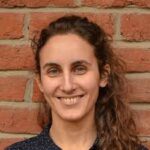 From Konkan to Coromandel – Anais da Fonseca on “Transformation at the heart of tradition: Cheriyal paintings from Telangana India’‘
From Konkan to Coromandel – Anais da Fonseca on “Transformation at the heart of tradition: Cheriyal paintings from Telangana India’‘
10December 2023
In the Southern Indian state of Telangana, itinerant storytellers used to narrate genealogies of the local castes using a scroll painting on cloth as a visual aid to their performance. In the early 1980s the All-India Handicraft Board (AIHB) developed an interest in these paintings as part of their initiatives for the sustainability of Indian handicrafts. The Board’s intervention increased the visibility of the paintings, pushing the performances to a secondary position and coined the tradition Cheriyal paintings. The emphasis on the material culture of this tradition permitted their entry to museums and the market and initiated what I call the institutionalisation of Cheriyal paintings. This paper presents some of the changes in the Cheriyal painting tradition, and the pictorial response to social transformations that took place since the intervention of the AIHB …and explores the tradition’s dynamic response to social changes in contemporary India and argues that this dynamism is what ensured its continuity over time.
Co-sponsored by Art, Resources, and Teaching Trust, Bangalore.
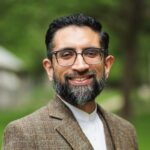 CIS Public Talks – Youshaa Patel on ‘The Most Controversial Fatwa of All-Time?: Muhammad ʿAbduh on Muslims wearing European Style Hats’
CIS Public Talks – Youshaa Patel on ‘The Most Controversial Fatwa of All-Time?: Muhammad ʿAbduh on Muslims wearing European Style Hats’
26 October 2023
The Rushdie affair brought the term fatwa into the Euro-American mainstream. But Ayatollah Khomeini’s fatwa against Salman Rushdie was not the first modern controversy over a fatwa. According to one legal historian: “No fatwa had ever been the object of such a heated debate in the history of Islam.” Focusing on the sartorial object of European headgear, Dr. Youshaa Patel situates Abduh’s fatwa within a long tradition of inter-Muslim debates on imitating non-Muslims (tashabbuh) in public life, thus casting new light on contemporary debates in the West over visible expressions of Islam, from headscarves and beards to minarets and mosques.
 From Konkan to Coromandel – Richard David Williams on “Performance, Poetry, and Painting: Towards a History of Music in the Deccan Sultanates’‘
From Konkan to Coromandel – Richard David Williams on “Performance, Poetry, and Painting: Towards a History of Music in the Deccan Sultanates’‘
20 October 2023
The history of music and dance under the Deccan Sultanates is still fragmentary at best and there is much that we do not know. In this lecture, I hope to sketch out a larger overview of the performing arts in these courtly contexts, with a central focus on the period from the 1580s to the 1660s, especially in the courts of Bijapur and Golkonda. My particular focus is on how the expressive arts were represented in Dakanī poetry and courtly painting, and how we might tentatively begin making sense of the sonic experiences embedded in these muted sources.
Co-sponsored by Art, Resources, and Teaching Trust, Bangalore.
 CIS Public Talks – Dina Rezk on ‘Virtue, Violence and Virility: Making Egypt’s Presidents‘
CIS Public Talks – Dina Rezk on ‘Virtue, Violence and Virility: Making Egypt’s Presidents‘
12 October 2023
Egyptian President Sisi embodies a contradiction of masculinist ideals. His presidential campaign relied on historical analogies to Gamal Abdel Nasser as ‘father’ of Arab nationalism, while simultaneously deploying more modern notions of a virile, progressive President. This talk explores the crucial role of masculinities in constituting and contesting political power and rehabilitating the security state through a critical examination of the gendered dynamics of how military legitimacy has been re-established in Egypt, whilst also historically contextualizing this process.
 From Konkan to Coromandel – Deepthi Murali on “Painted Chests and Sculpted Beds: Tracing Artistic Connections Between the Malabar Coast and the Broader Indian Ocean World‘‘
From Konkan to Coromandel – Deepthi Murali on “Painted Chests and Sculpted Beds: Tracing Artistic Connections Between the Malabar Coast and the Broader Indian Ocean World‘‘
11 August 2023
Deepthi is a Research Assistant Professor researching the Art History of South Asia at George Mason University. Her research centers on transcultural art objects, encounters, and artistic practices in littoral South India in the 18th and 19th centuries. In this talk she focuses on the elaborately carved chests and bedsteads that bridged the cultures on either side of the Indian ocean.
Co-sponsored by Art, Resources, and Teaching Trust, Bangalore.
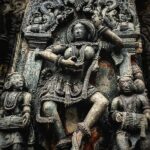 From Konkan to Coromandel – Samana Gururaja on “Shantaladevi: The History and Mythos of an “Exceptional” Hoysala Queen’‘
From Konkan to Coromandel – Samana Gururaja on “Shantaladevi: The History and Mythos of an “Exceptional” Hoysala Queen’‘
21 July 2023
On a visit to the celebrated Hoysaḷa temples at Belur and Halebid, it is near impossible to escape stories of twelfth-century queen Shantaladevi. Aware that inscriptions record her proficiency in dance, music, and dramaturgy, and familiar with the twentieth century novels that fictionalize her life as a romantic tragedy, tour guides identify the female forms that adorn the outside of the Channakeshava temple as her portraits. Very few people learn, however, that she commissioned the Kappe Channigaraya Temple that sits just to its left in a powerful political act. What we can learn about Shantaladevi by situating her in the systems and institutions of her own time instead of examining her in isolation? Was she truly different from other elite women of her time, and if so, was she exceptional for the reasons her mythos has long espoused?
Co-sponsored by Art, Resources, and Teaching Trust, Bangalore.
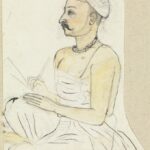 From Konkan to Coromandel – Holly Shaffer on “Gangaram Tambat: A Deccan Artist and a British Archive’‘
From Konkan to Coromandel – Holly Shaffer on “Gangaram Tambat: A Deccan Artist and a British Archive’‘
12 May 2023
Accessing the histories of artists’ lives is rare in South Asian art. This talk explores how the figure of Gangaram Tambat as an artist and person emerges through his drawings and the texts and publications of the British artists and colonial bureaucrats who employed him in the Deccan in the 1790s. It will also meditate on the potential of archives to uncover histories of lesser-known artists, but also consider the gaps in our understanding that will always remain.
Co-sponsored by Art, Resources, and Teaching Trust, Bangalore.
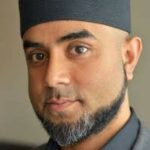 CIS Public Talks – Sadek Hamid on “Contemporary British Muslim Arts and Cultural Production: Identity, Belonging and Social Change‘
CIS Public Talks – Sadek Hamid on “Contemporary British Muslim Arts and Cultural Production: Identity, Belonging and Social Change‘
11 May 2023
This presentation offers an overview of the forthcoming edited volume -which is a unique collaboration between scholars, practitioners and Muslim artists. The text profiles emerging forms of contemporary British Muslim art, prompting a debate about its purpose and its inclusion in UK society and features analysis of Muslim art as a category, as well as reflective accounts of people working in theatre, popular music, the heritage sector and ancient and modern visual arts, who are often at the margins of the British arts industry.
 CIS Public Talks – Melissa Gatter on “Time, Power, and Aid: Book talk and discussion on displacement in Jordan, Spain, Morocco, and Bangladesh‘
CIS Public Talks – Melissa Gatter on “Time, Power, and Aid: Book talk and discussion on displacement in Jordan, Spain, Morocco, and Bangladesh‘
27 April 2023
Dr Melissa Gatter presents the core ideas from her recent book, Time and Power in Azraq Refugee Camp (American University in Cairo Press, 2023), which investigates the relationship between time and power in Jordan’s Azraq camp, asking how a politics of time shapes, limits, or enables everyday life for the displaced and for aid workers. Following this, she and discussants Dr Lorena Gazzotti and Dr Farhana Rahman explore the themes that connect their research on displacement, time and space, and care and control in cities and camps. Dr Gazzotti’s work has covered aid and migration control in the Canary Islands and the Spanish enclaves at the border of Morocco, and Dr Rahman examines gender and displacement in the Rohingya refugee camps in Bangladesh.
Apologies for the technical issues on this video.
 CIS Public Talks – Andreas Bandak on “Prophecies of Unity: Modelling Sainthood in Christian Syria‘
CIS Public Talks – Andreas Bandak on “Prophecies of Unity: Modelling Sainthood in Christian Syria‘
26 January 2023
This talk engages the question of unity as envisioned by devout Syrian Christians in the time leading up to the upheavals of 2011. Based on ethnographic fieldwork over a period of five years in Syria, the talk focuses on the life of a Damascus woman, Myrna Nazzour, who serves as an aspirational figure in her community. Myrna is regarded by her followers as an exemplary figure, a living saint, and the messages, apparitions, stigmata, and oil that have marked Myrna since 1982 have corroborated her status as chosen by God. In this talk I use this specific case to probe the power of examples, the modelling of sainthood around Myrna’s figure, and the broader context for Syrian Christians in the changing landscape of the Middle East.
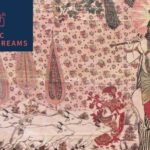 From Konkan to Coromandel – Sylvia Houghteling on “The Qalamkari Textiles of Golconda: Searching for Histories of Production, Patronage, & Place‘‘
From Konkan to Coromandel – Sylvia Houghteling on “The Qalamkari Textiles of Golconda: Searching for Histories of Production, Patronage, & Place‘‘
17 Jun 2022
By 1700, the qalamkari textiles from Machilipatnam, the central port of the sultanate of Golconda, had gained renown from Delhi to London. Yet despite the recurrence in local and global archives of the cotton cloths from Machilipatnam, none of the many extant export textiles from this early modern period can be securely attributed to this site of production. Moreover, because the patrons for qalamkari textiles included a wide range of individuals, from South Asian and British royalty to Japanese merchants and European householders, the styles of the cloths are stunningly diverse, displaying floral, figurative, and geometric ornament that makes it difficult to identify a characteristic repertoire. As such, we have a textual archive and material archive that it has not yet been possible to reunite. Drawing upon sources ranging from popular poetry to royal inventory records, this talk details the search for evidence of artisan lives and modes of textile production; sources of patronage and paths of circulation; and argues for the importance of considering the built and natural environment of coastal Golconda in writing histories of the region’s qalamkari cloths.
Sylvia Houghteling is an assistant professor in the Department of History of Art at Bryn Mawr College. Her first book, The Art of Cloth in Mughal India (recipient of a CAA Millard Meiss Publication Fund Grant) was published by Princeton University Press in the spring of 2022.
Co-sponsored by the DHF and the BIC.
CIS Public Talks – Edgunas Racius on “Institutional churchification of Islam in Eastern Europe‘
10 November 2022
The lecture will focus on the patterns of governance of Islam in post-communist Eastern Europe, which are found to differ from those common in Western Europe. Governance of Islam in Eastern Europe, and particularly in countries with autochthonous Muslim populations, is arguably permeated by ‘churchification of Islam’. Churchification here is understood as a state-pursued policy strategy in governing of religious plurality, whereby the national legislation pertaining to governance of religions, including Islam, foresees institutional and structural churchification of registered religious collectivities along the lines of the (once) dominant (national) Christian Churches. Research findings reveal that leading Muslim religious organizations in countries under research have accepted the state-set rules of the game and have been (willingly) turning themselves into church-like institutions (national Muslim Churches), reminiscent particularly of Orthodox Churches.
CIS Public Talks – Helen Lackner on “Yemen: Poverty and Conflict’‘
27 October 2022
Helen Lackner talking about her new book, Yemen, Poverty and Conflict. Designed both for newcomers to Yemen and for those with an existing interest and involvement in the country, this book explains the social, economic and political factors which have led the country to its current state of disintegration. She stresses the importance of addressing the country’s problems in a holistic manner. She also discusses recent developments and prospects: although a political solution has become more remote with the ending of the six-months truce in early October, it is likely that Saudi Arabia and the UAE will reduce, if not end, their military involvement, leaving it to the intra-Yemeni conflict which was on the cards eight years ago.
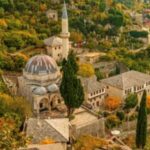 CIS Panel Discussion on “Indigenising Islam as a Minority – The Case of Shaykh Seraj Hendricks’‘
CIS Panel Discussion on “Indigenising Islam as a Minority – The Case of Shaykh Seraj Hendricks’‘
Panellists: Dr Hisham Hellyer, Dr Timothy Winters, Dr Asim Yusuf, Ms Arzoo Ahmed
Moderator: Dr Julian Hargreaves
24 October 2022
The Centre for Islamic Studies at the University of Cambridge, in coordination with the Woolf Institute, invites you to an evening in the company of Dr Hisham A. Hellyer, Dr Timothy Winter, Dr Asim Yusuf, Ms Arzoo Ahmed, and Naz Shah MP for a panel discussion on the case of the late Shaykh Seraj Hendricks and his role and impact as a Muslim minority leader in Cape Town, South Africa, as an example of the indigenisation of Muslim religious authority as a minority, deeply impacted by Western traditions.
Dr Hellyer will also share insights on his recently published book “Shaykh Seraj Hendricks: A Luminous Lamp in the Shade of Table Mountain“, a contemporary Sufi shaykh and Islamic scholar who was one of the main reference points for the Muslim community of the Cape in South Africa, who drew from his own Western education and his training at the hands of sages and savants in Makka.
Sadly we had technical difficulties with the integrated microphone so we don’t have a video – just (most of) the audio – hopefully this captures the gist of the conversation.
 CIS Public Talks – Roger Hardy on “A History of Palestine in Twelve Photographs’‘
CIS Public Talks – Roger Hardy on “A History of Palestine in Twelve Photographs’‘
13 October 2022
Photographers were drawn to Palestine by a special quality of light which threw into sharp relief the ancient walls and cobbled streets of Jerusalem’s Old City, the glistening watermelons on display in open-air markets, the white apartment blocks of the new metropolis of Tel Aviv, the dust and rubble of house blown up by soldiers during the rebellion of the 1930s.
Roger Hardy chooses a dozen photographs from his most recent book – The Bride: An Illustrated History of Palestine, 1850-1948 – to shed light on how this backwater of the Ottoman empire became the object of Western ambitions and rivalries, how it experienced three decades of British rule and how, in its final metamorphosis, it became the state of Israel.
The speaker was for more than twenty years a Middle East analyst with the BBC World Service. He is the author of two earlier books, The Muslim Revolt: A Journey through Political Islam and The Poisoned Well: Empire and Its Legacy in the Middle East.
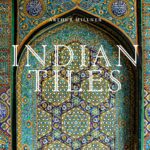 From Konkan to Coromandel – Mr Arthur Millner on “A Cosmopolitan yet Local Tradition: Glazed Tiles in the Deccani Sultanates‘‘
From Konkan to Coromandel – Mr Arthur Millner on “A Cosmopolitan yet Local Tradition: Glazed Tiles in the Deccani Sultanates‘‘
17 Jun 2022
Arthur Millner is a consultant and independent scholar in the field of Indian and Islamic art. He lectures at the London School of Oriental and African Studies, the Victoria and Albert Museum, the Royal Asiatic Society and the Oriental Rug and Textile Society. He is the author of numerous articles and the 2015 book, Damascus Tiles (Prestel).
Co-sponsored by the DHF and the BIC.
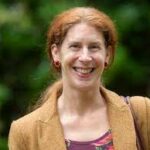 From Konkan to Coromandel – Dr Julia A.B. Hegewald on “Reflections on Jaina and Vīra-Śaiva Interactions in the Art and Architecture of Karnataka‘‘
From Konkan to Coromandel – Dr Julia A.B. Hegewald on “Reflections on Jaina and Vīra-Śaiva Interactions in the Art and Architecture of Karnataka‘‘
3 Jun 2022
Julia A. B. Hegewald graduated from the School of Oriental and African Studies, University of London, from where she also obtained her PhD. After postdocs in Oxford and Heidelberg, she was Lecturer and then Reader at the University of Manchester. She is now Professor and Head of the Department of Asian and Islamic Art History at the University of Bonn.
Co-sponsored by the DHF and the BIC.
 From Konkan to Coromandel – Dr Tiziana Lorenzetti on “The Vīraśaivas / Liṅgāyats of 12th century Karnataka: Conflict, Transformation, and the Genesis of a New Creed’‘
From Konkan to Coromandel – Dr Tiziana Lorenzetti on “The Vīraśaivas / Liṅgāyats of 12th century Karnataka: Conflict, Transformation, and the Genesis of a New Creed’‘
20 May 2022
Graduating from the University of Rome ‘La Sapienza’, Tiziana Lorenzetti obtained her PhD. in ‘History of the Art of India and Oriental Asia’ from the ‘University of Genoa (Italy)’. She was Postdoctoral Fellow at ‘National Museum Institute of the History of Art’, New Delhi, and Lecturer in Indian Art and Culture at the Sapienza of Rome.
Co-sponsored by the DHF and the BIC.
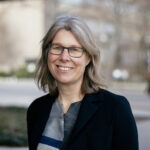 CIS Public Talks – Prof. Petra Sijpesteijn on “Petitioning government officials in early Islamic Egypt’‘
CIS Public Talks – Prof. Petra Sijpesteijn on “Petitioning government officials in early Islamic Egypt’‘
19 May 2022
Life in medieval Egypt was difficult. Harvests could fail, wild animals might eat the crops or damage the fields. Illness and death could strike suddenly. Abuse, deceit, theft and corruption generated feuds and law-suits between business partners, family members or neighbours. How did people deal with such problems? To whom could they turn with their stories of abuse, mismanagement or theft?
Prof. Sijpesteijn will use documents on papyrus from Egypt and Palestine to reconstruct how complaints were dealt with, social tensions diffused, and the equilibrium maintained by Arab government officials in the early Islamic period.
Petra Sijpesteijn is professor of Arabic at Leiden University.
 Book Launch – Ahmed Paul Keeler on “A Life’s Journey – The Story behind a Book’‘
Book Launch – Ahmed Paul Keeler on “A Life’s Journey – The Story behind a Book’‘
11 May 2022
The author is in conversation with Professor Khaled Fahmy (Director of the Centre of Islamic Studies at Cambridge) discussing the lifelong process through which his first book was written (Rethinking Islam & the West: A New Narrative for the Age of Crises, 2019)..
A Life’s Journey is the companion volume to Rethinking Islam and the West, and tells the intriguing story behind Keeler’s challenging thesis.
 CIS Public Talks – Dr. Edward Zychowicz-Coghill on “Reconstructing the Earliest Islamic History Writing from the 2nd Hijrī Century: The Case of the First Arabic Annals’‘
CIS Public Talks – Dr. Edward Zychowicz-Coghill on “Reconstructing the Earliest Islamic History Writing from the 2nd Hijrī Century: The Case of the First Arabic Annals’‘
5 May 2022
This talk argues that we can identify one genre of texts, brief annalistic histories, which were being compiled as early as the first half of the 2th hijrī century (c. 710-760 CE) and which were then incorporated into the great later compilations like al-Ṭabarī’s (d. 310 AH/923 CE) History of Prophets and Kings. It proposes a method for reconstructing one of these, a history written by the Egyptian jurist al-Layth b. Saʿd in the 120s AH/740s CE. By inspecting the kind of information al-Layth’s recorded and assessing it alongside al-Layth’s connections, we can identify the political and intellectual contexts in which the earliest formal collection of Islamic historical record was cultivated.
Edward Zychowicz-Coghill is Lecturer in the History of Asia pre-1750 at King’s College London.
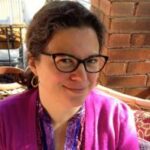 From Konkan to Coromandel – Dr Karen Ruffle on “The City of Haidar as a Shiʿi Paradise:Divine Sovereignty, Built Space, and Shiʿi Materiality in Qutb Shahi Hyderabad’‘
From Konkan to Coromandel – Dr Karen Ruffle on “The City of Haidar as a Shiʿi Paradise:Divine Sovereignty, Built Space, and Shiʿi Materiality in Qutb Shahi Hyderabad’‘
29 April 2022
Karen Ruffle is Associate Professor of South Asian Islam in the Departments of Historical Studies and Study of Religion at the University of Toronto. Her research focuses on devotional texts, ritual practice, and Shiʿi material practices in South Asia. Her books include Everyday Shiʿism in South Asia (2021) and Gender, Sainthood, and Everyday Practice in South Asian Shi’ism (2011). Her current projects include a monograph titled, Building the City of Haider: Kingship, Urban Space, and Shiʿi Ritual in Qutb Shahi Hyderabad and a large-scale study of South Asian Shiʿi material culture and sensorial practices titled, Barakah Bodies: Shiʿi Materiality, the Sensorium, and Ritual in India and Pakistan.
Co-sponsored by the DHF and the BIC.
 From Konkan to Coromandel – Prof. Sarah Fee & Rajarshi Sengupta on “Cloth that Changed the World: Histories and Contemporaneity of Kalamkari Making’‘
From Konkan to Coromandel – Prof. Sarah Fee & Rajarshi Sengupta on “Cloth that Changed the World: Histories and Contemporaneity of Kalamkari Making’‘
8 April 2022
This talk will consider the printed and painted cottons – often known as kalamkari – made in the Deccan, and coastal southeast India, in the past and in the present. The first speaker, Sarah Fee, will present a recent exhibition at the Royal Ontario Museum, “The Cloth that Changed the World: India’s Painted and Printed Cottons”, that featured numerous examples of these uniquely coloured and intricately patterned cloths made in coastal Andhra Pradesh, including a formerly unknown set of monumental 17th-century hangings likely made for a Nayaka ruler and palace. The second speaker, Rajarshi Sengupta, will consider the modern artistry in the making of this storied cloth.
Co-sponsored by the DHF and the BIC.
T he study of Islam at the end of empire – Prof. Faisal Devji on “The Proper Name’‘
he study of Islam at the end of empire – Prof. Faisal Devji on “The Proper Name’‘
25 March 2022
This event is the closing keynote address of the IIS-Cambridge workshop on the study of Islam at the end of empire. The workshop brings together scholars of Muslim thought in order to reassess and reconsider a critical moment in the making of modern Islam: the transition from orientalism to “Islamic Studies”. It foregrounds the possibility that the academic study of Islam emerged not as some orphan of empire but as an entirely distinct intellectual enterprise intimately linked with the arrival of post-colonial sovereignty. Workshop papers will consider how Islam was and is approached as a field of study, but also how formerly colonised actors imagined new worlds and modes of political subjectivity for themselves through the container of “Islam” and its histories.
This keynote address, building on these broad workshop themes, explores the question: when and why did Islam come to be conceived of as a proper name?
 CIS Public Talks – Dr. Helen Pfeifer on “Empire of Salons’‘
CIS Public Talks – Dr. Helen Pfeifer on “Empire of Salons’‘
27 January 2022
Helen Pfeifer is a historian of the Ottoman Empire, with an interest in understanding the empire within larger Islamic, European, and global contexts. This talk, which launches Pfeifer’s new book Empire of Salons, offers glimpses into 16th-century gentlemanly salons in the Ottoman Empire. As in any good, learned assembly, there will be poetry and jokes; but the talk won’t neglect the more cutthroat aspects of Ottoman conversation culture. Salons, the talk will show, were not just places of idle entertainment, but key sites where Middle Eastern society and culture were made.
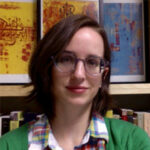 CIS Public Talks – Dr. Elizabeth Urban on “Conquered Populations in Early Islam’‘
CIS Public Talks – Dr. Elizabeth Urban on “Conquered Populations in Early Islam’‘
27 January 2022
Elizabeth Urban is an Associate Professor of History at West Chester University of Pennsylvania, where she specializes in the first two centuries of Islamic history (7th–8th centuries CE). Her talk draws upon her award-winning first book, Conquered Populations in Early Islam (Edinburgh University Press, 2020), which explores how new Muslims of slave origins entered early Islamic society and articulated their identities within it. Dr. Urban’s work brings together three groups—freedmen, enslaved women, and the children of enslaved mothers—to explore how Islam transformed from a small piety movement into the doctrine of an expansive empire. Throughout the talk, she will highlight the important role that enslaved and freed persons played in shaping the meaning of foundational terms such as Arab and Muslim.
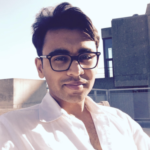 CIS-DHF Malabar series – Mohit Manohar on ‘“A Victory Tower Built by a Slave”: The Chand Minar at Daulatabad‘
CIS-DHF Malabar series – Mohit Manohar on ‘“A Victory Tower Built by a Slave”: The Chand Minar at Daulatabad‘
12 November 2021
The Chand Minar (1446) at Daulatabad Fort is one of the tallest pre-modern stone minarets in the world and has long been recognized as a major work of Indo-Islamic architecture. Yet surprisingly little is known about the building: its iconography and the reason for its construction have not been established; not even its height is certain. My talk analyzes the building’s architecture and urban context and critically reads its inscriptions against the Tārīkh-i Firishta (ca. 1610),the main primary text for the history of the medieval Deccan. In so doing, I demonstrate that the Chand Minar was commissioned by an African military slave to impress upon the then-reigning sultan, ʿAlaʾ al-Din Ahmad II (r. 1436–58), the value of retaining in his court dark-skinned officers from India and Africa (dakkaniyān) at a time when their standing was threatened by the lighter-skinned gharībān, who had immigrated from the western Islamic regions. The lecture thus presents a detailed study of an important but neglected monument while shedding new light on racial factionalism in the fifteenth-century Deccan.
Mohit Manohar is an Andrew W. Mellon Fellow at the Center for Advanced Study in the Visual Arts and a Ph.D. Candidate in the History of Art department at Yale University.
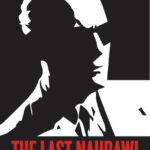 CIS Public Talks – Dr. Hussam Ahmed on “The Last Nahdawi: Taha Hussein and Institution Building in Egypt’‘
CIS Public Talks – Dr. Hussam Ahmed on “The Last Nahdawi: Taha Hussein and Institution Building in Egypt’‘
25 November 2021
In this talk, Hussam R. Ahmed will speak about his new book, The Last Nahdawi: Taha Hussein and Institution Building in Egypt, released in June 201 by Stanford University Press. The book explores the efforts of Taha Hussein (1889-1973), one of the most influential thinkers and statesmen of the modern Arab world, in formulating and implementing Egypt’s cultural and educational policies within a challenging colonial context. Neither existing historiography nor literary projects grounded in postcolonial studies do justice to the institutional and political context in which Hussein was writing and making decisions. Drawing on state and university archival records and Hussein’s private papers, The Last Nahdawi shifts the focus from Hussein the Dean of Arabic Literature to the lesser-known politician and civil servant and offers the first biography in which his intellectual outlook and public career are taken equally seriously.
Hussam R. Ahmed is a historian of the modern Middle East. He completed his Ph.D. at McGill University in 2018 focusing on the social and cultural history of modern Egypt. He then took up postdoctoral fellowships at KU Leuven and the University of Cambridge before joining the Department of History at the National University of Ireland, Maynooth as Assistant Professor.
 CIS Public Talks – Prof. Michael Cooperson on “They cannot be imitated in English”: translating the Arabic Impostures of al-Hariri (d. 1122)’‘
CIS Public Talks – Prof. Michael Cooperson on “They cannot be imitated in English”: translating the Arabic Impostures of al-Hariri (d. 1122)’‘
11 November 2021
The best-known work of fiction in pre-modern Arabic was not the 1001 Nights but a collection of stories called Impostures. The hero is a hard-drinking preacher who can produce any kind of speech, including puns, riddles, and palindromes, on demand. Because of its over-the-top wordplay, Impostures has long been called untranslatable. Yet it has been adapted successfully into Hebrew, German, and Russian. The latest attempt is in English, and puts each of the 50 stories into a different historical, literary, or global style, from thieves’ cant to Multicultural London English. Does it work? You decide!
Michael Cooperson teaches Arabic at the University of California, Los Angeles. He has published numerous studies of early Abbasid cultural history, including Classical Arabic Biography (2000) and Al-Ma’mun (2005). His translations from Arabic include The Life of Ibn Hanbal, by Ibn al-Jawzī (NYU Press 2017), and al-Hariri’s Impostures (NYU Press, 2020), which won the 2021 Sheikh Zayed Book Award in the translation category.
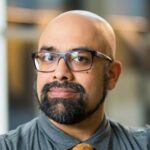 CIS Public Talks – Prof. Anver Emon on ‘The challenge of thinking about ‘Islamic law’‘
CIS Public Talks – Prof. Anver Emon on ‘The challenge of thinking about ‘Islamic law’‘
28 October 2021
In 1980, the Hague Conference issued the Hague Abduction Convention to develop a mechanism to address the phenomenon of cross-border parental child abduction. For years, however, the Hague Conference has endeavored to get Muslim-majority states (with Islamic law inspired family law codes) to join the convention but with little success. These countries often argue, instead, that the convention violates Islamic law. In Jurisdictional Exceptionalisms, Anver M. Emon (with co-author Urfan Khaliq, Cardiff Law School) examine the legally perplexing case of cross-border parental child abduction by interrogating the logics of both private international law (aka Conflicts of Law) and Islamic law (both premodern and as implemented in modern states). The limited literature on this topic addresses it from the perspective of human rights, children’s rights, or Islamic legal exceptionalism. Drawing on upon this recent publication, Emon will elaborate on insights gained from the research critical insight into the possibilities of comparative law, international law, and Islamic legal studies..
Anver M. Emon is Canada Research Chair in Islamic law and history at the University of Toronto, where he is appointed in both the Faculty of Law and Department of History, and is Director of the University of Toronto’s Institute of Islamic Studies.
CIS-DHF Malabar series – Katherine Kasdorf on ‘Monumental Jinas and Networks of Prestige: Jain Temples of the Hoysala Capital’
22 September 2021
The capital of the Hoysala dynasty (ca. 1000-1346 CE), in present-day Halebidu, Karnataka, is best known for its elaborately sculptural Hoysaleshvara temple, dedicated to Shiva. Yet the Hoysala-period city (then called Dorasamudra) was home to numerous temples serving multiple religious communities. Dorasamudra’s Jain temples were among the most prominent in the city, attracting elite patronage, artistic innovation, and royal attention.In this talk, Dr. Kasdorf will look to the Parshvanatha temple, its inscriptions, and other Jain material from Dorasamudra—including two more monumental Jinas—to explore the role of Jain temples in the Hoysala capital and the prestigious networks in which they participated.
Katherine E. Kasdorf is Associate Curator of Arts of Asia and the Islamic World at the Detroit Institute of Arts (DIA).
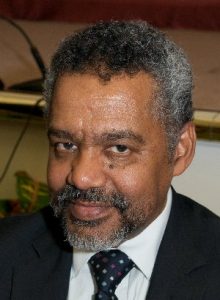 CIS Public Talks – Prof. Abdelwahab El-Affendi and Dr Azmi Bishara on ‘Standing the Democratic Transition Paradigm on its Head: New Reflections after the Arab Revolutions‘
CIS Public Talks – Prof. Abdelwahab El-Affendi and Dr Azmi Bishara on ‘Standing the Democratic Transition Paradigm on its Head: New Reflections after the Arab Revolutions‘
14 October 2021
At a time when the last democratic flame in the region (in Tunisia) is perilously flickering, presenting our region as a site of fresh thinking on democracy and democratization might look a bit audacious, to put it mildly. In our recent book (After the Arab Revolutions) we go further than that, advertising the “Decentering of Democratic Transition Theory”, as the subtitle puts it. Our argument is that lessons learned about the dynamics of the Arab uprisings, and even the factors that caused democratic experiments to collapse, are as enlightening as those that had caused democracies to thrive elsewhere. They could also explain provenance of the threats facing established democracies in Europe, the US and elsewhere, as populist rebelliousness is pushing democracies perilously towards the edge.
Abdelwahab El-Affendi, Doha Institute for Graduate Studies and Visiting Fellow at the Centre
Azmi Bishara, Arab Centre for Research and Policy Studies
 CIS Public Talks – Prof. Khaled Fahmy on ‘The külliyyeof Mehmed AliPasha (r.1805-1848) in Kavala, Greece‘
CIS Public Talks – Prof. Khaled Fahmy on ‘The külliyyeof Mehmed AliPasha (r.1805-1848) in Kavala, Greece‘
13 October 2021
Watch on Google
Khaled Fahmy Professor Khaled Fahmy is the Director of the Centre of Islamic Studies, His Majesty Sultan Qaboos Bin Sa’id Professor of Modern Arabic Studies, and a Fellow of King’s College, Cambridge.
CIS-DHF Malabar series – Manu Pillai on ‘Begums and Maids: A History of the Deccan through its Female Protagonists’
10 September 2021
From the thirteenth century, down to the eighteenth, the Deccan was home to some remarkable women. Their contributions straddle everything from poetry and intellectual thought to war and diplomacy. Could we, potentially then, reconstruct the history of the Deccan through their eyes? In this lecture Manu S. Pillai will highlight the lives, careers, and ideas of some of the key female figures of the late medieval and early modern Deccan. Covering the sultanates as well as the Maratha state, and featuring begums and ranis as well as a kitchen maid, we will discover how these women challenged received wisdom and tropes and expressed ideas so bold that they still resonate. Together they encapsulate a fascinating chapter of Indian history that can tell us a lot about politics, dissent, and how we ourselves perceive the past and its inhabitants.
Manu S. Pillai is the author of The Ivory Throne (2015), Rebel Sultans (2018), and The Courtesan, the Mahatma & the Italian Brahmin (2019). His fourth book releases in September 2021.
CIS-DHF Malabar series – Richard Eaton on ‘The Persianate World: What is it? How did it appear? Why did it Collapse?’
11 June 2021
Richard Eaton is a professor in the University of Arizona with a primary interest in the social and cultural history of pre-modern India (1000-1800). Most recently, he has published the second volume of the new Penguin history of India, entitled India in the Persianate Age, 1000-1765, which explores the long-term interaction between the Persianate and Sanskritic worlds, between the Iranian Plateau and South Asia, and between Islam and Indian religious traditions.
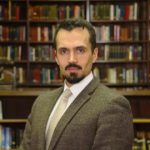 CIS Public Talks – Hisham Hellyer on ‘The New Geopolitics of the Middle East – Back to the Future?‘
CIS Public Talks – Hisham Hellyer on ‘The New Geopolitics of the Middle East – Back to the Future?‘
3 June 2021
The wider Middle East has seen over the last two decades a variety of shifting poles of influence, and even more differing ideas as to what those poles are. Some have posited the ‘Sunni Alliance’ against the ‘Shia Crescent’; others have posited different, less essentialist labels. Following the beginning of the Arab Uprisings in 2011, yet more groupings were formulated in terms of analysis, describing the region as divided between states that were pro-revolution, and those that were anti-revolution; while other analysis insisted that such generalisations missed glaring contradictions. In recent months, yet more shifts have taken place regionally, particularly against the backdrop of a new American administration, and knock-on effects among American allies in the region, which have preceded other moves. Dr HA Hellyer, a visiting fellow at the Centre of Islamic Studies at the University of Cambridge, and a scholar at the Carnegie Endowment for International Peace in Washington DC, offers his own thoughts and reflections at what is truly at the base of these shifts, and how they all connect to an overarching question of ‘unfinished business’ in the aftermath of the colonial era in the region.
Dr Hellyer is Senior Associate Fellow, The Royal United Services Institute (London) and the Carnegie Endowment for International Peace (DC)
CIS-DHF Malabar series – William Dalrymple and George Michell on ‘Discovering the Deccan’
28 May 2021
William Dalrymple (a Scottish travel writer and historian, whose work centres chiefly on the Indian subcontinent) in conversation with George Michell (who has researched and written on Early Chalukya temple architecture, surveys of town planning and Islamic buildings, studies of Hindu temple architecture and sculptureand in the 1980s and 1990s he co-directed an extensive survey of Hampi-Vijayanagara).
Muslim Thought in South Asia – Naveeda Khan on ‘What is Bangladesh?’
25 May 2021
Naveeda Khan is an associate professor in the Department of Anthropology. She received her BA in History from Vassar College, her MA in Anthropology from the New School for Social Research and her PhD in Anthropology from Columbia University.
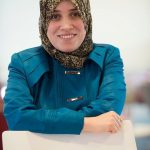 CIS Outreach – Yomna Helmy on ‘Maqāṣid Discourse from Islamic Modernism to Theorising Authoritarianism‘
CIS Outreach – Yomna Helmy on ‘Maqāṣid Discourse from Islamic Modernism to Theorising Authoritarianism‘
20 May 2021
Historically, maqāṣid al-sharīʿah was connected to the five main purposes of the Islamic law, which were articulated within the traditional strict framework of uṣūl al-fiqh. However, since the beginning of the 20th century, modernist and Islamic reformers have proposed more sharīʿah objectives and argued that the maqāṣid-oriented approach indicates that ‘Islamic’ priorities include the modern principles of democracy, social justice, human rights, and the government’s accountability. However, this talk addresses how the modern maqāṣid discourse has been politicised … by analysing the use of the maqāṣid by Shiekh ‘Abdullah Bin Bayyah in his recent declarations concerning the UAE’s policies against regional democracy. The paper argues that this ideological interpretation could shift the purpose-oriented basis of maqāṣid al-sharīʿah to result-oriented objectives, which focus on specific ideologies to satisfy contradicting political ends.
A virtual symposium hosted by the American Journal of Islam and Societies (AJIS) – published by the International Institute of Islamic Thought (IIIT).
 CIS Public Talks – Glenn Robinson on ‘Global Jihad – A Brief History.‘
CIS Public Talks – Glenn Robinson on ‘Global Jihad – A Brief History.‘
20 May 2021
Global Jihad tells the story of four distinct jihadi waves, each with its own program for achieving a global end: whether a Jihadi International to liberate Muslim lands from foreign occupation; al-Qa’ida’s call to drive the United States out of the Muslim world; ISIS using “jihadi cool” to recruit followers; or leaderless efforts of stochastic terror to “keep the dream alive.” Robinson connects the rise of global jihad to other “movements of rage” such as the Nazi Brownshirts, White supremacists, Khmer Rouge, and Boko Haram. Ultimately, he shows that while global jihad has posed a low strategic threat, it has instigated an outsized reaction from the United States and other Western nations.
CIS-DHF Malabar series – 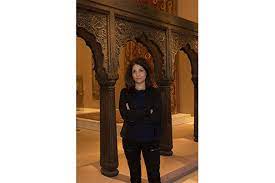 Navina Najat Haidar on ‘Rocks from a brush : Artistic encounters with Deccani rocks, hills and landscapes‘
Navina Najat Haidar on ‘Rocks from a brush : Artistic encounters with Deccani rocks, hills and landscapes‘
14 May 2021
India’s Deccan plateau contains ancient and dramatic rock formations, distinctive landscape features and open vistas. These settings had a transformative effect on Mughal painters trained in naturalistic observation, particularly in the northern Deccan where they were first encountered. But Deccani painters too had responded to their remarkable environment in unique styles and expressions that interwove idealized landscapes with real ones. This talk explores a variety of artistic encounters with Deccani rocks, mountains and landscapes through the brush of the painter. It is an expansion of an earlier discussion in the series “I Am Here To Wonder” related to the upcoming film: Other Kohinoors, The Rocks of Hyderabad.
Muslim Thought in South Asia – Anand Vivek Taneja on ‘Sharing a Room with Sparrows: Maulana Azad and Muslim Ecological Thought’
11 May 2021
Anand’s research and teaching focus on the religious and cultural traditions of South Asia, specializing in the anthropological study of contemporary Islam, Indian popular culture, and inter-religious relations between Muslims and Hindus.
CIS-DHF Malabar series – Julia A. B. Hegewald on ‘Jaina Temple Architecture of Coastal Karnataka: Climatic Dependencies and Artistic Freedoms‘
30 April 2021
Julia Hegewald is Professor of Oriental Art at the University of Bonn. She focuses on artistic and architectural expressions of different forms of dependency in Asian, particularly South Asian, art and architecture. She employs the theory of ‘re-use’ to show how different people have reacted in a variety of situations of extreme dependency, frequently in very creative ways, to integrate the old and the new, to bridge divides and eventually to contribute to cultural processes which are able to heal and mediate between at times wide and violent disparities of cultural expression.
Our interview with SherAli Tareen as part of our new podcast series “Rethinking Islam Today” is available now on Anchor and all podcast platforms: https://anchor.fm/cis-cambridge
Muslim Thought in South Asia – ‘SherAli Tareen: Debating Hindu-Muslim Friendship after Empire‘
27 April 2021
Despite the long and rich tradition of Muslim thinking from and about the Indian subcontinent, intellectual histories of Islam tend not to pass through South Asia. This seminar series brings together emerging and established scholars from various disciplinary backgrounds to discuss Muslim thought in South Asia, past and present. Convened by Taushif Kara the Centre of Islamic Studies at the University of Cambridge.
SherAli Tareen (Associate Professor of Religious Studies at Franklin & Marshall College) joined us on 27 April to discuss his new work on the idea of the Hindu-Muslim encounter in colonial India. SherAli’s first book is “Defending Muhammad in Modernity” (2019, University of Notre Dame Press) which reanimates the contours of the infamous Barelvi-Deobandi polemic as a contest between competing political theologies. In 2020, the book was awarded the American Institute of Pakistan Studies book prize.
CIS-DHF Malabar series – Nicolas Roth on ‘Balsam and Betel Nut Palm: Botanical Representation in the Early Modern Deccan‘
9 April 2021
Nicolas Roth received his PhD in South Asian Studies from Harvard University. His research explores the history of gardens and horticulture in early modern India, as well as the material and intellectual culture of the region more broadly. He works with materials in Sanskrit, Persian, and various forms of Hindi and Urdu across a broad array of textual genres, as well as with visual sources found in painting and other art forms.
Cambridge Festival 2021 – Taushif Kara on ‘Minority Questions‘
31 March 2021
It has become increasingly difficult to escape the language of numbers and the logic of demography in contemporary politics globally. Islam, despite its global reach and character, is often reduced to the conceptual category of the “minority”. Moving beyond narrowly conceived debates about integration or assimilation, this panel brings together researchers from different disciplinary backgrounds to discuss how Muslims themselves address the question of the “minority” in different contexts. How did Muslims in India, for example, conceive of their place within the nation during the intellectual ferment of the colonial period? How did minorities within Islam, such as the Twelver Shi‘a or the Ismai‘ili, cultivate their own shifting subjectivities?
Three early career researchers from the University of Cambridge will present elements of their work and engage in a moderated discussion via Zoom.
Cambridge Festival 2021 – Emanuelle Degli Esposti on ‘Charity and activism in Shiism: How grassroots are changing the face of British Shiism ‘
30 March 2021
What is the link between religious faith, grassroots activism, and charitable giving? And how might charity serve as an expression of faith in the twenty-first century? Part of the Cambridge Festival 2021, this event brings together Shi’a Muslim activists and thinkers to speak about how their faith inspires them to give back, and what kinds of lessons might Shi’a forms of charitable activism be able to teach wider society in our hyper-connected and globalised modern world.
Speakers were Dr Mohammedabbas Khaki of global social justice network Who is Hussain?, and Dr Rebecca Masterton, author of Shi’i Spirituality for the Twenty-first Century.
CIS-DHF Malabar series – Subhashini Kaligotla on ‘Written in Stone: Traces of Medieval Architects‘
26 March 2021
Subhashini Kaligotla is Assistant Professor of Indian and South Asian Art at Yale University. Her area of expertise is early medieval Deccan India, 500 – 800 CE, with specific research interests in the multisensorial experience of sacred architecture, the agency of makers and images, the intersections between visual and textual representation, landscape history and culture, and the historiography of South Asian art history.
CIS Public Talks – Magnus Marsden on ‘‘Inter-Asia’ through Inland Eyes: Afghan Trading Networks across Land and Sea.‘
11 March 2021
This presentation demonstrates the significance of long-distance networks formed by traders from Afghanistan and Central Asia to the forging of present day transregional connections within Asia. It identifies two corridors of connectivity authored by these traders: a ‘Eurasian corridor’ connecting East Asia to post-Soviet Eurasia and extending into Western Europe and a ‘West Asian corridor’ involving traders originally from Central Asia linking East Asia to Turkey and the Arabian Peninsular. Empirically, the paper documents and analyses the varying cultural and political orientations of traders operating along these networks, and ways in which specific nodes in the networks contribute to their activities as a whole. Conceptually, the papers suggests that recent work in the expanding field of Indian Ocean studies would benefit from a greater recognition of the intersections between land and sea networks.
The Visual Culture Seminar Series – on ‘New York, Lahore: In Dialogue with Shahzia Sikander and Salman Toor.‘
10 March 2021
Shahzia Sikander changed the game of the art world with her breakthrough at the Whitney Biennial in 1997. This year, Salman Toor, debuted his first solo museum exhibition at the Whitney, How Will I Know. In June, Sikander will open a career retrospective, Extraordinary Realities, at the Morgan Library & Museum co-organised with the RISD Museum. Centered on issues of gender, identity, global affiliations, appropriation, and narrative, this conversation engages the relationship between two artists on how they have navigated the shifting worlds of New York and Pakistan. In dialogue, we will pause and reflect over how we got here and anticipate where we are going.
Convened by Vivek Gupta and moderated by Amy Tobin.
CIS Public Talks – Michael Farquhar on ‘‘Policing Infitah’: Economic Liberalisation, Security and Social Order in Egypt.‘
25 February 2021
This talk draws on a previously unexplored trove of writings authored by Egyptian police officers since the mid-twentieth century to shed new light on how policing has figured in the consolidation of late capitalist social order in the Global South. Mike demonstartes that efforts to understand how policing figures in the politics of economic liberalisation in the Global South must avoid isolating the question of repressive violence. Instead, it is important to consider how overt violence may intersect with broader dimensions of police work in the production of capitalist social order. Secondly, historicising policing as a locally-situated discursive field offers bases for moving beyond one-size-fits-all notions of “neoliberal penalty” or the “neoliberal police state”.
CIS Public Talks – Sertaç Sehlikoglu on ‘Genealogy, Critique, and Decolonization:Ibn Khaldun and Moving Beyond Filling the Gaps‘
11 February 2021
The aim of this paper is to locate critique at the intersections of the genealogy of knowledge in anthropological thinking and the decolonizing movement. The paper approaches the decolonizing movement as one of the most crucial points in anthropological thinking, as long as it can go beyond filling the gaps in genealogies by engaging with non-Eurocentric scholarship and, additionally, by carrying the critical angles to the ways it engages with those non-Eurocentric scholarships.
CIS Public Talks – David Henig on ‘New borders, Old solidarities: (Post-) Cold War Genealogies of Mobility along the ‘Balkan Route‘
28 January 2021
This paper considers the relevance of the Non-Aligned Movement (NAM) in the context of grassroots solidary responses to the geopolitics of borders and mobility along the so-called ‘Balkan route’. It focuses on the encounters between the unauthorised movement of people across borders, and on localised solidarities emerging from such encounters. Specifically, it ethnographically probes the role personal experiences with NAM have played in fostering such solidarities. I focus on two biographic fragments, two life histories, two generations, each reflecting a different experience with NAM and its afterlives. These biographic fragments, I argue, offer an insight into shared threads of cultural intimacy, political commitments and solidarities fostered by NAM across generations. In turn, this paper interrogates how these NAM experiences and imaginings can create political solidarities that emerge and are enacted ‘not so much above or below the nation-state [and its borders] as alongside it’ (Malkki 1998: 436) in our contemporary moment.
CIS-DHF Malabar series – Emma Flatt on ‘The Courts of the Deccan Sultanates: Living Well in the Persian Cosmopolis‘
8 January 2021
Emma Flatt is an Associate Professor at UNC. Her research has focused on mentalities and practices in the courtly societies of the Indo-Islamicate Deccani Sultanates of South India. Her doctoral thesis, which she is currently revising for publication, explored the world of the peripatetic courtier, who moved across regions and between courts in search of generous patrons and focuses on three case studies of different “knowledges” that helped a courtier attain success: letter-writing, wrestling, and astrology. These three case studies illustrate the ways in which the acquisition of expertise in a particular knowledge provided the courtiers with opportunities for self-fashioning.
Discussants:
Prof. Evrim Binbaş (University of Bonn)
Dr. Helen Philon (DHF)
Dr. Vivek Gupta (University of Cambridge)
CIS-DHF Malabar series – Richard Eaton on ‘India in the Persianate Age‘
11 December 2020
Richard Eaton is a professor in the University of Arizona with a primary interest in the social and cultural history of pre-modern India (1000-1800). Most recently, he has published the second volume of the new Penguin history of India, entitled India in the Persianate Age, 1000-1765, which explores the long-term interaction between the Persianate and Sanskritic worlds, between the Iranian Plateau and South Asia, and between Islam and Indian religious traditions.
Discussants:
Alka Patel – Associate Professor in the Department of Art History and in the PhD Program for Visual Studies at the University of California, Irvine.
Roy Fischel – Lecturer in the History of South Asia at SOAS University of London.
CIS Public Talks – Sarah Tobin on ‘Self-Making in Exile: Moral Emplacement by Syrian Refugee Women in Jordan‘
3 December 2020
This presentation brings an anthropology of ethics to bear on a case of forced migration and displacement among Syrian refugee women in Jordan. This case reveals how projects of Islamic self-making in displacement become “emplacement” processes within the new state-mediated context. This case reveals that Syrian women in Jordan engage in Islamic self-making as part of their wider emplacement practices by operating more publicly in the material world through Islamically-inspired actions and rituals than in Syria. Using focus groups and interviews from urban Jordan and a Syrian refugee camp, this paper focuses on these practices of Islamic self-making that serve an important role in the projects of moral emplacement for Syrian women in the Jordanian context.
CIS-DHF Malabar series – George Michell on ‘Art and Architecture of the Badami Chalukyas‘
27 November 2020
Dating from the 6th to 8th centuries, the Hindu and Jain temples of the Chalukyas of Badami, in the heartland of the Deccan, are unrivalled in India for their comparatively early date and unusually complete condition. Chalukya temples are of outstanding interest for their transition from rock-cut techniques, as in the cave-temples at Badami and Aihole, to structural building, as at Mahakuta and Pattadakal. Tthese features aree illustrated and discussed in the webinar given by George Michell, who began his documentation of the Chalukya monuments no less than 50 years ago.
CIS-DHF Malabar series – Pushkar Sohoni on ‘The Architecture of a Deccan Sultanate: Courtly Practice and Royal Authority in Late Medieval India‘
13 November 2020
The Deccan sultans left a grand architectural and artistic legacy. They commissioned palaces, mosques, gardens and tombs as well as decorative paintings and coins. Of these sultanates, the Nizam Shahs (r. 1490-1636) were particularly significant, being one of the first to emerge from the crumbling edifice of the Bahmani Empire (c. 1347-1527). Yet their rich material record remains largely unstudied in the scholarly literature, obscuring their cultural and historical importance.
In this talk Pushkar Sohoni examines the critical relationship between architectural production, courtly practice and royal authority in a period when the aspirations and politics of the kingdom were articulated through architectural expression. As well as offering a vivid depiction of sixteenth-century South Asia, this book revises understanding of the cultural importance of the Nizam Shahs and their place in the Indian Ocean world.
Discussants: Marika Sardar (Aga Khan Museum), Vivek Gupta (CIS)
CIS Public Talks – Abdelwahab El-Affendi on ‘The Barbaric Science of Civilised Company: Revisiting the Perennial Crisis of the “Science” of Things Political‘
12 November 2020
Political science has struggled with a series of existential crises that accompanied its birth and continue to plague it. Recent developments, including the failure to predict the Arab revolutions and the populist tide in the West, have again highlighted these problems, and provoked serious debates that revisited old contests about the “scientific” pretences of the discipline, its claims to objectivity and its Eurocentrism. In this talk, it is argued that these failures to spot emerging trends are not incidental, and are inherent in the nature of the discipline itself. It dismisses defensive “explanations” of these failures, including claims that predictions are impossible anyway, and are not part of the job description, or ascribing the problem to methodological shortcomings. It seeks to show that the discipline has a built-in “barbaric” streak linked to its continuing role as the handmaiden of policy and its colonial history. .. When genocide turns from a taboo to a valid policy option, with many not even noticing, we seem to have a problem.
Abdelwahab El-Affendi is Professor of Politics, Provost and Acting President of the Doha Institute for Graduate Studies, Qatar. El-Affendi has served as the Head of the Politics and IR Program at the Institute (2015-2017), and was founder and Coordinator of the Democracy and Islam Program at the University of Westminster (since 1998). He is also head of Promotion Committee and the Institute. El-Affendi also served as a diplomat in the Sudanese Foreign Ministry (1990-1997), London-based journalist, including editor or managing editor of several publications (1982-1990).
CIS Public Talks – Alice Wilson on ‘Defeated Revolutionaries, Lasting Legacies: the social afterlives of revolution in Dhufar, Oman‘
15 October 2020
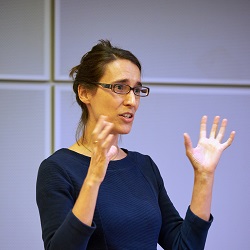 What are the legacies of a defeated revolution? Prevailing narratives depict defeated revolutions as examples of successful counter-insurgency campaigns. This project’s ethnographic research with former revolutionary families from the liberation movement of Dhufar, Oman (active 1965-1975), nevertheless shows how, forty years on, ex-militants and relatives use kinship and mundane socialising to reproduce revolutionary networks and values of social egalitarianism. Foregrounding the social afterlives of defeated revolution, this research contributes to a counter-history of defeated revolutionaries. The project highlights the limitations of post-conflict patronage to win and change hearts and minds, and the potential of family and everyday relations during and after revolution to challenge dominant norms.
What are the legacies of a defeated revolution? Prevailing narratives depict defeated revolutions as examples of successful counter-insurgency campaigns. This project’s ethnographic research with former revolutionary families from the liberation movement of Dhufar, Oman (active 1965-1975), nevertheless shows how, forty years on, ex-militants and relatives use kinship and mundane socialising to reproduce revolutionary networks and values of social egalitarianism. Foregrounding the social afterlives of defeated revolution, this research contributes to a counter-history of defeated revolutionaries. The project highlights the limitations of post-conflict patronage to win and change hearts and minds, and the potential of family and everyday relations during and after revolution to challenge dominant norms.
Bio: Alice Wilson is Senior Lecturer in Social Anthropology at the University of Sussex. Her research focuses on transformations of the relationship between governing authorities and governed constituencies in revolutions and liberation movements in the Middle East and North Africa. She is author of Sovereignty in Exile: a Saharan liberation movement governs (Pennsylvania, 2016).
Conference – Arafat Razzaque, in collaboration with CRASSH, convened ‘Fostering Ethics: Islam, Adoption and the Care of Children‘
25 June 2020
Muslim beliefs and practices with regard to the adoption of children and foster care is currently a subject of increasing attention. Besides the various circumstances that can leave many Muslim children in the care of social services, the needs of refugees and unaccompanied minors coming to the UK and Europe from war-torn countries have highlighted particular challenges facing the system. Legal differences between some Western and Muslim countries on the definition of adoption have meanwhile remained a longstanding problem, often resulting in families divided across borders. Responding to some of these concerns, a number of Muslim welfare organizations and community leaders have taken an unprecedented interest in formulating revised Islamic guidelines on the ethics of adoption and foster care.
In this conference the participants discussed the problems and possible solutions to help increase Muslim adoption and fostering in the UK and beyond.
CIS Public Talks – Yossef Rapaport on ‘Lost Maps of the Caliphs‘
11 June 2020
 About a millennium ago, in Cairo, someone completed a large and richly illustrated book. In the course of thirty-five chapters, our unknown author guided the reader on a journey from the outermost cosmos and planets to Earth and its lands, islands, features and inhabitants. This treatise, known as The Book of Curiosities, was unknown to modern scholars until a remarkable manuscript copy surfaced in 2000.
About a millennium ago, in Cairo, someone completed a large and richly illustrated book. In the course of thirty-five chapters, our unknown author guided the reader on a journey from the outermost cosmos and planets to Earth and its lands, islands, features and inhabitants. This treatise, known as The Book of Curiosities, was unknown to modern scholars until a remarkable manuscript copy surfaced in 2000.
In this talk Prof. Rapoport will give a general overview of The Book of Curiosities and the unique insight it offers into medieval Islamic thought. He will explain how the book helps us to re-evaluate the development of astrology, geography and cartography in the first four centuries of Islam. Early astronomical ‘maps’ and drawings demonstrate the medieval understanding of the structure of the cosmos and illustrate the pervasive assumption that almost any visible celestial event had an effect upon life on Earth.
CIS Public Talks – Robert Springborg on ‘Deep States and Deep Trouble in the MENA‘
28 May 2020
Increasing use of the deep state concept by experts on the MENA suggests that it may be more than just an omnibus conspiracy theory employed by detractors of a particular government; that it may accurately describe political reality in at least some MENA and possibly non-MENA countries; and that it may be a useful concept with which better to understand politics and even economics in those countries. Robert Springborg will excavate under contemporary MENA political economies in search of their deep states and consequences.
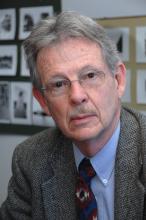 Professor Robert Springborg is Adjunct Professor, School of International Studies, Simon Fraser University, Vancouver; and non-resident Research Fellow of the Italian Institute of International Affairs in Rome. In 2016 he was Visiting Scholar at the Belfer Center, Harvard University, and in 2014 was the Visiting Kuwait Professor at the Paris School of International Affairs at Sciences Po, Paris. Until October 2013, he was Professor of National Security Affairs at the Naval Postgraduate School and Program Manager for the Middle East for the Center for Civil-Military Relations. From 2002 until 2008 he held the MBI Al Jaber Chair in Middle East Studies at the School of Oriental and African Studies of the University of London, where he also served as Director of the London Middle East Institute. Before taking up that Chair he was Director of the American Research Center in Egypt. From 1973 until 1999 he taught in Australia, where he was University Professor of Middle East Politics at Macquarie University. He has also taught at the University of California, Berkeley, the University of Pennsylvania, College of Europe (Warsaw), Canterbury Univer
Professor Robert Springborg is Adjunct Professor, School of International Studies, Simon Fraser University, Vancouver; and non-resident Research Fellow of the Italian Institute of International Affairs in Rome. In 2016 he was Visiting Scholar at the Belfer Center, Harvard University, and in 2014 was the Visiting Kuwait Professor at the Paris School of International Affairs at Sciences Po, Paris. Until October 2013, he was Professor of National Security Affairs at the Naval Postgraduate School and Program Manager for the Middle East for the Center for Civil-Military Relations. From 2002 until 2008 he held the MBI Al Jaber Chair in Middle East Studies at the School of Oriental and African Studies of the University of London, where he also served as Director of the London Middle East Institute. Before taking up that Chair he was Director of the American Research Center in Egypt. From 1973 until 1999 he taught in Australia, where he was University Professor of Middle East Politics at Macquarie University. He has also taught at the University of California, Berkeley, the University of Pennsylvania, College of Europe (Warsaw), Canterbury Univer
Woolf Institute – Emanuelle Degli Esposti chairs a panel on ‘Becoming British Muslim – Building Identity across the divides’
This webinar brought together speakers from both Sunni and Shi’a Islam in order to discuss how to work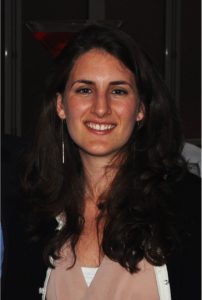 together to build a cohesive British Muslim identity in uncertain times. The discussion was informed by insights drawn from the British Academy-funded “Beyond Sectarianism?” project, especially with regards to the issues of religious authority, fostering diversity, and dialogue and exchange. Speakers also discussed the impact of the current COVID-19 pandemic on the Muslim community, and the various ways in which British Muslims have responded to the crisis.
together to build a cohesive British Muslim identity in uncertain times. The discussion was informed by insights drawn from the British Academy-funded “Beyond Sectarianism?” project, especially with regards to the issues of religious authority, fostering diversity, and dialogue and exchange. Speakers also discussed the impact of the current COVID-19 pandemic on the Muslim community, and the various ways in which British Muslims have responded to the crisis.
CIS Public Talks – John Chalcraft on ‘Egypt’s 2011 Uprising, Subaltern Cultural Politics, and Revolutionary Weakness‘
14 May 2020
Explanations for the weakness and failure of the uprisings in the Arab world of 2011 range from the hard-power and structure-centred accounts of conventional political science to interactionist studies emphasizing micro-dynamics and relational mechanisms. Drawing on Gramscian perspectives, and fieldwork in Egypt, this paper aims to open up an occluded line of investigation into the subaltern cultural politics of the uprising in Egypt as a way to make sense of revolutionary weaknesses and limits. This paper argues that the study of popular good sense against the regime and common sense supporting the army can help explain revolutionary weakness in Egypt during 2011-13.
John Chalcraft is the Professor of Middle East History and Politics at the L.S.E.. He works on history and politics ‘from below’ in the modern Middle East and North Africa and is currently working on transnational advocacy and activism with reference to migrant labour rights in the GCC, Palestinian rights in Israel/Palestine, and civil and political rights in Bahrain, Egypt and Tunisia.
Oral Histories of the Disappeared – Khaled Fahmy on ‘Archives of a Quarantine‘
8 May 2020
This talk is part of the CRASSH series ‘Archives of the Disappeared’ which is an interdisciplinary  research initiative for the study and documentation of communities, social movements, spaces, lifeworlds, literatures and cultures that have been destroyed through acts of political repression and mass violence. In this session Prof. Fahmy will be talking archives and quarantines, and will read the introduction and first chapter of his book, In Quest of Justice: Islamic Law and Forensic Medicine in Modern Egypt.
research initiative for the study and documentation of communities, social movements, spaces, lifeworlds, literatures and cultures that have been destroyed through acts of political repression and mass violence. In this session Prof. Fahmy will be talking archives and quarantines, and will read the introduction and first chapter of his book, In Quest of Justice: Islamic Law and Forensic Medicine in Modern Egypt.
CIS Public Talks – Mercedes Volait on ‘Art at the Bayt al-Sadat: on local engagement with photography and interior refurbishment in Khedival Cairo‘
23 Jan 2020
Mercedes looked at issues of patronage, materiality, and consumption in connection with the production of Mamluk-style architecture and design in nineteenth-century Cairo.
Mercedes Volait is CNRS Research professor at INHA (Institut national d’histoire de l’art, Paris) and heads its digital research unit on architecture, antiquarianism, and applied arts in the modern Mediterranean. Her education has been in architecture, Middle Eastern studies, and art history.
CIS Public Talks – Jack Shenker on ‘Children of the Interregnum: political imagination in Egypt, Britain and beyond‘
17 Oct 2019
Jack Shenker is a journalist and author based in London and Cairo, who writes about politics, protest, and anything else that springs to mind. His stories have won several international awards, and been translated into many languages. Formerly Egypt correspondent for the Guardian newspaper, his work has also covered Gaza, Africa, Central Asia, the US and the UK, and been published in a wide range of newspapers and magazines around the world including Granta, the London Review of Books and the New York Times, as well as being adapted into films by the BBC. In 2016 his first book, ‘The Egyptians: A Radical Story’, was published by Allen Lane and Penguin to critical acclaim.
CIS Public Talks – Nadia Kamel discusses her book – ‘Al_Mawloudah’ with Prof. Khaled Fahmy and Dr. Hussam Ahmed
3 June 2019
Award-winning Egyptian author and filmmaker Nadia Kamel’s heritage is a complex blend of religions and cultures. Her mother is a half-Jewish, half-Italian Christian who converted to Islam when she married Nadia’s half-Turkish, half-Ukrainian father. But her book, Al-Mawloudah, is only partially about the life of one woman of Egypt; it is also the documentation of an oral history of Egypt’s foreigners, Jews and Communists; of the inhabitants of Cairo, the consecutive rules of Gamal Abdel-Nasser and Anwar El-Sadat and of course of the latter’s dramatic visit to Jerusalem and the subsequent peace process. Above all, it is a story told from the heart with a great deal of passion.
At this event, held in English, the author was in discussion with Dr Hussam Ahmed, a Visiting Researcher at the Centre and Professor Khaled Fahmy from the Faculty of Asian and Middle Eastern Studies.
CIS Public Talks – Saussan Khalil on ‘Arabic in Flux: Social media, revolution and the transforming linguistic landscape‘
2 May 2019
Recent developments in Arabic writing have defied convention, from online youth political activism, to social media and even print publishing. Dr. Khalil explores these developments and re-imagines the Arabic language of the digital age.
Saussan is Senior Language Teacher at the Faculty of Asian and Middle Eastern Studies, Cambridge University. She has recently completed her PhD from Leeds University. Saussan is also the founder of Kalamna C.I.C, a social venture providing children’s Arabic classes in Cambridge: www.kalamna.org.
CIS Public Talks – Laleh Khalili on ‘Thinking about Tankers:Labour, Port-Making, and Capitalism’:
7 March 2019
Many of the practice we now associate with containerisation -e.g. the automation of processes of maritime circulation, and the transformation of urban landscapes around the ports- go back at least two decades before the 1950s, to the legal, engineering, and financial innovations around petroleum tankers.
By focusing on the tanker terminals of the Arabian Peninsula since the 1930 and the subsequent burgeoning of tankerships plying the trade between the Peninsula and the rest of the world, Prof. Khalili illuminates the radical transformations the tanker trade has anticipated. These include early automated workplaces; terminals far enough from port-city centres to isolate them from public scrutiny; and disciplining of workers aboard tankships. Further the shift in ownership structures and financing of tanker trades over the last one-hundred years either foreshadows or dramatically illuminates the transformations in financial capital itself. Finally much of lex petrolea, the legal and arbitral corpus that sets the parameter of extraction and circulation of oil, itself provides the ground on which late capitalist legal property regimes are founded.
Our Assistant Director, Dr Paul Anderson, gave a talk on Yiwu on 12 March at the Doha Institute for Graduate Studies in Qatar. Title: A new Silk Road? Documenting merchant lives across contemporary Eurasia.
12 March 2019
CIS Public Talks – Heba Morayef on ‘Struggles for Justice in the Aftermath of the Uprisings in Tunisia and Egypt‘:
21 Feb 2019
Heba Morayef is the Amnesty International’s Regional Director for the Middle East and North Africa. Before joining Amnesty International she worked for seven years on human rights in Egypt for the Egyptian Initiative for Personal Rights and Human Rights Watch where she conducted human rights investigations. She was closely engaged in legislative and criminal reform work during the transitional years in Egypt and has also worked on Libya and Tunisia.
CIS Public Talks – Khaled Fahmy on ‘Applying shari’a in modern times: Some reflections from 19th-century Egypt’
31 January 2019:
Seminar at the Al-Mahdi Institute – Emanuelle Degli Esposti on ‘Being Shia in Europe? Identity and Belonging in the Modern Age‘
CIS Public Talks – Paul Keeler on ‘Changing the Narrative: Islam and the Modern World‘ 2018:
The idea of necessary progress came out of the European Enlightenment and continues to underpin the narrative driving the Modern World. Islam is seen to have contributed to this narrative when it had a Golden Age at a time when Europe was plunged in darkness. Europe then took up the torch of progress whilst Islam declined and stagnated, and today belongs to developing nations that are attempting to catch up with the West. However, the Modern World is now beset with multiple escalating environmental and other crises which scientists and experts in their various fields, are warning threaten our very existence. Yet the belief in human progress is undiminished. The emergence of a cruel and brutish terrorism, claiming its origin in Islam, has provided a new existential enemy, and Muslims are fast becoming the scapegoats for a world in crisis.
How to make sense of such contradictions, aberrations and confusion? Ahmed Paul Keeler invites us to examine the worlds of Islam and Modernity, not through the Western narrative of progress but through the Islamic perspective of al mizan (balance, justice, measure, harmony). What emerges is a fresh and challenging insight into both Islam and the Modern World.
Ahmed Paul Keeler was the founder / Director of the acclaimed ‘World of Islam’ Festival in 1976. He has been involved in a number of projects exploring the historical environment of Islam, and is at present focussing on al-Mizan as a fundamental dynamic in the ordering of Islamic civilization. He is a Visiting Fellow at the CIS.
CIS Public Talks – Madawi Al Rasheed on ‘“Rogue Elements” or Rogue State: Saudi Arabia after Khashoggi‘ 2018:
In the light of the murder of journalist Jamal Khashoggi in the Saudi consulate in Istanbul on 2 October, the Saudi regime faced a serious, unprecedented crisis; mainly the collapse of its reputation as a benevolent monarchy. In the literature on authoritarianism, the monarchy is classified as one that uses more carrots than sticks with critics and dissidents. However, the consulate incident exposed this persistent myth and undermined Saudi credibility at the domestic and international levels. This presentation explored the consequences and assess future prospects.
Dr Madawi Al-Rasheed is a visiting professor at the Middle East Centre at LSE. She has written extensively about the Arabian Peninsula and her most recent book is Salman’s Legacy: the Dilemmas of a New Era in Saudi Arabia, Hurst, 2018.
2018 Festival of Ideas – Mehrunisha Suleman on ‘Living Well, Dying Well’: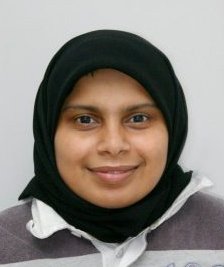
CIS Public Talks – Wael Hallaq on ‘Restating Orientalism – A Critique of Modern Knowledge‘ 2018:
Wael Hallaq presents his case:
The panel discussion:
For Audio-only:
Turbulent Worlds – The Kurdish Question Revisited 2018 [audio-only]:
http://www.cis.cam.ac.uk/wp-content/uploads/2018/02/TW-The-Kurdish-Question-Revisited-Audio.wma
Narratives of Conversion: Male Perspectives – Report Launch, Cambridge 2016:
Muslims in the UK and Europe Postgraduate Symposium 2014:
Narratives of Conversion to Islam: Female Perspectives – An Interview with Professor Yasir Suleiman in 2013:
The Alwaleed Centres – a documentary 2012:



